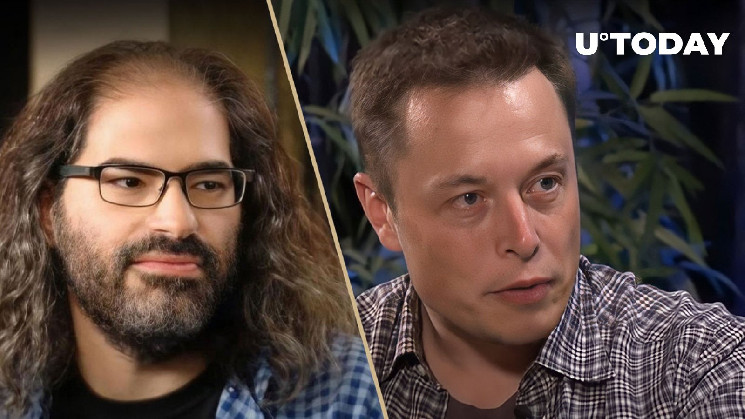Ripple chief executive officer David Schwartz has published a screenshot of an extract from the judge’s ruling which resulted in the case filed by Elon Musk’s X social media giant (formerly known as Twitter) against a non-profit organization CCHD (Center for Countering Digital Hate) in July last year.
X sued the company, accusing it of criticizing X for a rise in the amount of hate speech posts and thus driving advertisers away by implementing a “scare campaign”. X Corporation demanded “at least tens million dollars”. The judge pointed out that this fine would “torpedo the operations of the small non-profit,” thus also preventing others from sending criticism against X.
Schwartz has criticized Musk, claiming that he has a “comically narrow understanding of the scope of freedom of speech” and called the California federal judge’s ruling “shocking.”
Ripple CTO slams Elon Musk for his lawsuit
Schwartz has referred to Musk as a “self-proclaimed defender of free speech” as he attempted to get the court to punish CCHD for saying things against X and posts allowed to be published on this platform. “Nobody could have predicted this,” Schwartz emphasized.
The Ripple top executive stressed that Musk’s lawsuit shows that his definition of free speech is pretty much subjective and he is trying to get the court to accept it and make a verdict on its basis. CCHD accused X of permitting hate speech posts to be published in large amounts. Judge Charles Breyer stated that this “case is about punishing the Defendants for their speech” as he dismissed the case.
While Elon claims to believe in freedom of speech, his own speech and lawsuits show that his understanding of the scope of freedom of speech is comically narrow. It's easy to believe in freedom of speech if you think it includes almost nothing. (Read the ruling, it's shocking.)
— David "JoelKatz" Schwartz (@JoelKatz) March 25, 2024
Elon Musk's transformation of Twitter
Elon Musk acquired the Twitter micro-blogging giant in October 2022 for $44 billion after many months of making bids, facing decline and even a law suit filed by Twitter’s former management for Musk’s attempt to back out of the deal.
After the acquisition, Musk rebranded the platform from Twitter into X, aiming to turn it into an “everything app.” Under Musk’s ownership, X began to censor posts much less than before the purchase, especially in cases when users disagreed with the government’s enforced attitude towards the pandemic. X also offers legal and financial support to users who have faced pressure or were dismissed from their jobs over their posting on X.
 u.today
u.today
